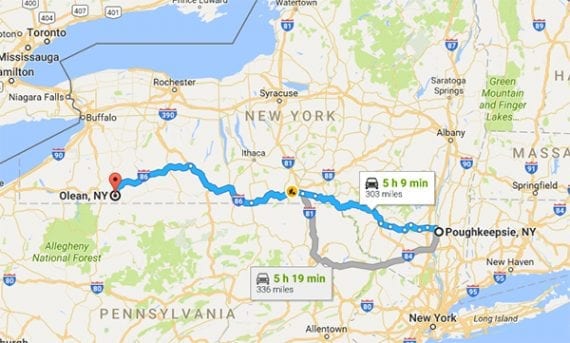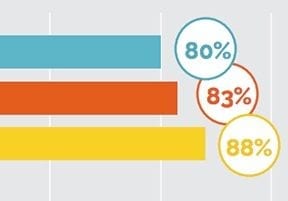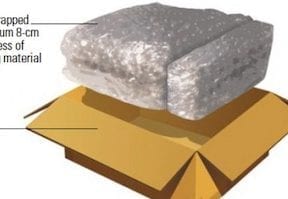Third-party order fulfillment services can warehouse products, pick and pack items as orders come in, and ship a merchant’s products to the customer on that merchant’s behalf. While all of these services come at a cost, there are a few ways that employing third-party order fulfillment services can help an ecommerce business grow.
Using a fulfillment service may lower shipping costs and improve delivery times, improve operating efficiency, and free up time. In turn, all of these improvements can help an ecommerce business grow.
Offer Distributed Shipping Locations
It costs less to ship orders to customers close to your business’s warehouse. What’s more, it should also take less time for shipments to arrive at your customer’s location when that location is nearby.
These points may appear obvious, but they are overlooked by some ecommerce retailers and they represent one of the most important benefits of using a third-party order fulfillment firm to warehouse products and ship orders.
Imagine for a moment that your current warehouse is in Boise, Idaho, but many of your customers are in New York state. You want to offer free shipping to be competitive. But it costs you about $11 to ship a typical order to New York, where, again, many of your orders originate.
The solution might be to work with a fulfillment company that has a warehouse in New York. When an order comes in from the East Coast, your fulfillment service can ship it for, say, $6.
What’s more, the orders will arrive sooner. It might take five days for a ground shipment to go from Boise, Idaho to Poughkeepsie, New York, but from your fulfillment partner’s facility in Olean, New York, a ground shipment will be there tomorrow.

It is about 300 miles from Olean, New York to Poughkeepsie, New York. By comparison, Boise to Poughkeepsie is almost 2,500 miles. Thus shipping costs will be lower and delivery times faster.
You can now offer fast, free shipping to your customers and still make a profit, fueling growth for your ecommerce operation.
Reduce Operating Expenses
There a few ways an online retail business might work with third-party fulfillment services, including simply replacing the retailer’s own warehouse.
While each retailer’s situation will be unique, using a service company that specializes in warehousing and fulfillment could help some ecommerce businesses reduce operating expenses. For example, employing a third-party fulfillment firm could:
- Eliminate or at least reduce the cost of leasing a warehouse or storage unit,
- Reduce labor costs and taxes associated with order fulfillment,
- Lower packing material costs, since fulfillment services may have better prices,
- Pack and ship more quickly, allowing more economical shipping services to be used,
- Cut shipping costs because of volume and warehouse location.
The money saved could be dropped directly to the bottom line or invested in other areas of the business, like marketing, which in turn could lead to growth.
Focus on Other Areas
In addition to the possible monetary benefits described in the section above, working with a third-party fulfillment service may also free up a merchant’s time.
This is especially true for small online retail operations. For example, if it’s your job to both develop the store’s content marketing and pack orders from noon to 5:00 p.m., using a fulfillment service may mean that you have a lot more time for blog posts, customer-attracting articles, a video FAQ section, or similar.
If you believe content marketing will help your business grow, having the time to do more of it or to be more effective at it is very important.
Options for Order Fulfillment
For at least a few reasons described here, employing a third-party fulfillment service could help an ecommerce business grow. The emphasis is on “could help,” since not every business is in a position to use third-party services nor does it make sense for every product in every situation.
To understand if this is a good option for your ecommerce operation, it can be helpful to consider some of the fulfillment options or models available for tangible products.
- Fulfill your own orders. Almost any retailer, large or small, can fulfill its own orders. Self-fulfilling orders has the benefit of controlling the process and adding personal touches or branding to shipments. For low-volume sellers, this is probably the least expensive model.
- Outsource orders. When you hire a third-party fulfillment service, you are effectively outsourcing. You gain all of the benefits described above, but do surrender control and some branding opportunities.
- Mixed order fulfillment. Your business can fulfill some orders and outsource others. This model works especially well for regional businesses seeking to grow in other areas or for seasonal sellers who need help during peak times.
- Drop shipping. Your business might not even need to buy products at all. With drop shipping, when a customer buys something from you, you then buy it from the manufacturer or distributor, which ships the order directly to your customer.




